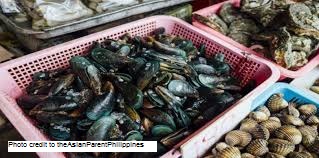
A nine-year-old boy from the municipality of Pilar died, while 31 others received treatment in various health facilities in Capiz due to suspected paralytic shellfish poisoning (PSP).
In a phone interview on Thursday, Capiz Provincial Health Office (PHO) public information officer Ayr R. Altavas said 28 suspected cases were from Pilar, three from Pontevedra town, and one from Roxas City. No other information was available for the suspected PSP death except that the boy ate green mussels from an unknown source.“The youngest was six years old while the eldest was 87 years old,” he said, adding they continue with their active case findings.
Governor Fredenil H. Castro has a marching order for health facilities under the provincial government of Capiz to continue providing patients with appropriate medical interventions.
Castro immediately sent a team from the PHO-Capiz Epidemiological Surveillance and Response Unit (CESRU) to investigate the reported information from health workers of the Bailan District Hospital in Pontevedra about patients suffering from abdominal pain, vomiting, diarrhea, numbness, dizziness, loss of balance and other signs and symptoms after eating green mussels or “tahong” on Aug. 22, Altavas said. The provincial government also urged the public to support Executive Order 20 issued by Pilar Mayor Arnold A. Perez on Aug. 22, temporarily prohibiting the gathering, harvesting, transporting, selling and consuming of all forms of shellfish within the municipality. As an added measure, the province advised Capiz residents to refrain from eating shellfish that can cause the potential PSP, as they also intensified their information and education communication activities on how to avoid the PSP and its complications. The Department of Health Western Visayas Center for Health Development (DOH CHD WV) will send experts on Friday for technical assistance and deeper investigation of the cases. Altavas said the Bureau of Fisheries and Aquatic Resources (BFAR), the authority when it comes to red tide, has not released a statement or advisory if the red tide exists in the waters of Capiz. In a separate interview, BFAR Regional Director Remia Aparri said the coastal waters of Roxas City and municipalities of Ivisan, Sapian and Pilar already have the presence of the species of harmful algal cells or the Pyrodinium bahamense that can cause the PSP. These are dormant when conditions are unfavorable, but bloom and multiply rapidly when the environment, including the temperature, water, nutrients and sunlight are favorable. She added they continue to conduct monitoring of the water quality in the area although the province of Capiz can conduct laboratory testing. The confirmation, however, has to come from the central office of BFAR, which has the authority to come up with a shellfish bulletin on whether the area is positive or negative for the harmful algal bloom or red tide.




